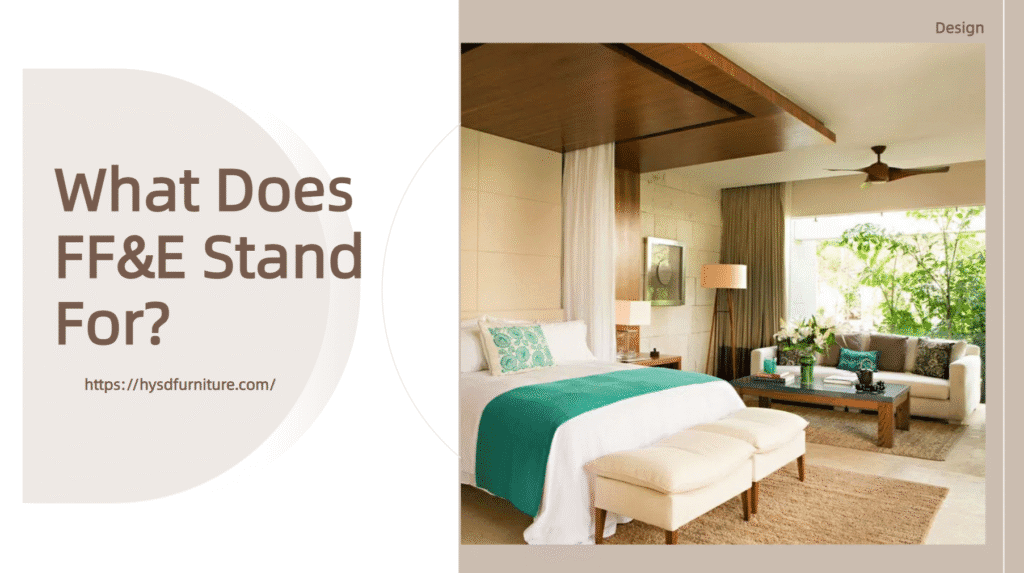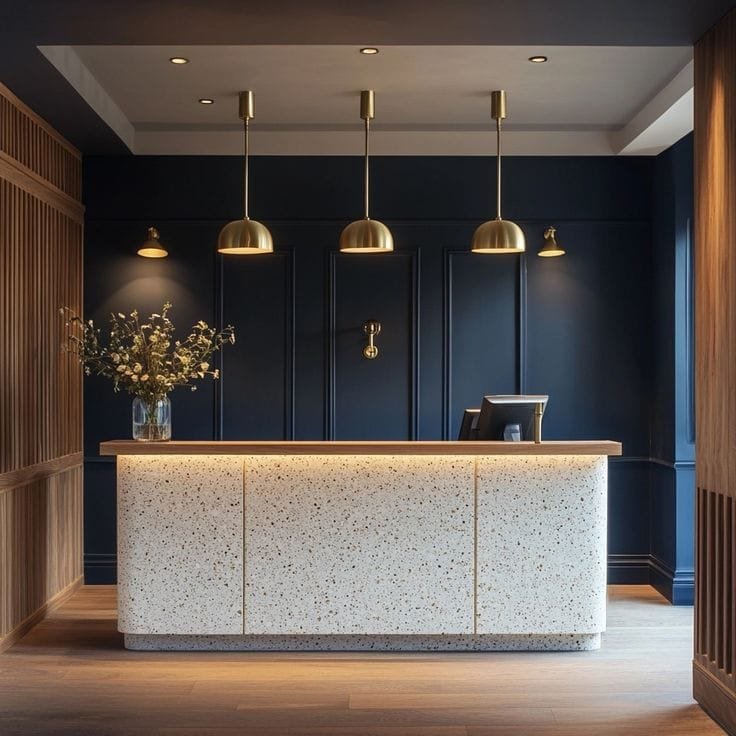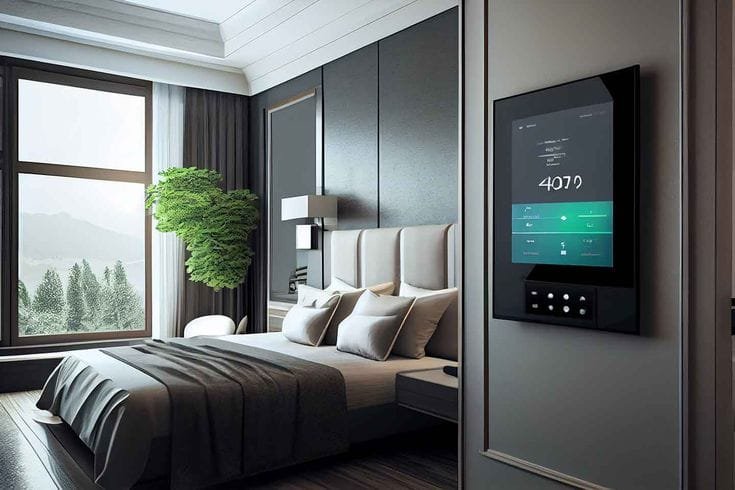
FF&E (Furniture, Fixtures, and Equipment) forms the backbone of hotel design, guest experience, and operational efficiency. Unlike structural elements, FF&E encompasses all movable items that define a hotel’s aesthetic and functionality—from beds and lighting to artwork and technology. This comprehensive guide explores FF&E’s strategic role in hospitality, providing actionable insights for designers, hoteliers, and procurement professionals to optimize investments and create memorable guest environments.
Understanding FF&E: Core Concepts and Industry Impact
Defining FF&E in Hospitality
FF&E refers to non-structural, movable assets essential for hotel operations:
- Furniture: Beds, chairs, desks, sofas, and storage units
- Fixtures: Lighting, mirrors, bathroom vanities, and window treatments
- Equipment: TVs, safes, kitchen appliances, and HVAC systems
Table 1: FF&E vs. Structural Elements
| Category | FF&E Examples | Structural Examples |
|---|---|---|
| Mobility | Movable beds, lounge chairs | Fixed walls, plumbing |
| Replacement Cycle | 5–15 years | 20–50 years |
| Budget Allocation | 8–12% of project costs | 60–70% of project costs |

Why FF&E Matters in Hotels
- Guest Experience: 73% of travelers prioritize sleep quality, directly tied to mattress and bedding selection1.
- Brand Differentiation: Luxury hotels spend 3x more on custom FF&E to create unique identities.
- Revenue Optimization: Premium FF&E enables 15–25% higher average daily rates (ADR).
Case Study: The Ritz-Carlton’s $12M FF&E overhaul increased guest satisfaction scores by 22% and repeat bookings by 18% within two years.
Strategic FF&E Procurement: Best Practices
The 5-Phase Procurement Process
- Design Alignment (Months 1–3): Collaborate with architects to match FF&E to brand standards and spatial constraints.
- Supplier Selection (Months 4–6): Evaluate vendors based on:
- Material certifications (GREENGUARD, FSC)
- Customization capabilities
- Lead times (typically 12–26 weeks)
Table 2: Hotel FF&E Budget Breakdown
| Hotel Tier | FF&E Budget per Room | Key Cost Drivers |
|---|---|---|
| Luxury | $35,000–$50,000 | Custom woodwork, imported materials |
| Upscale | $20,000–$35,000 | Hybrid designs, premium fabrics |
| Midscale | $8,000–$15,000 | Standardized modular pieces |
- Prototyping & Testing (Months 7–9):
- Conduct 1,000-cycle durability tests on seating
- Verify fire ratings (ASTM E84 Class A)
- Logistics Coordination (Months 10–12):
- Plan staggered deliveries to avoid storage fees
- Use RFID tracking for real-time inventory management
- Installation & QA (Months 13–15):
- Train staff on preventive maintenance protocols
- Document defects for warranty claims
Case Study: A Marriott property saved $480,000 by negotiating bulk pricing for 500+ room FF&E packages.
FF&E Lifecycle Management
Maintenance Strategies for Longevity
- Daily: Inspect joints and upholstery seams
- Monthly: Rotate mattresses, lubricate moving parts
- Annual: Professional deep cleaning and refinishing
Table 3: FF&E Lifespan by Material
| Material | Average Lifespan | Maintenance Cost/Year |
|---|---|---|
| Solid Hardwood | 12–15 years | $120 |
| Engineered Wood | 7–10 years | $200 |
| Powder-Coated Metal | 10–12 years | $80 |
Technology Integration Trends
- Smart FF&E: IoT-enabled beds adjusting firmness via guest apps
- Self-Sanitizing Surfaces: UV-C light fixtures in high-touch areas
- Modular Systems: Reconfigurable lobby furniture for events

Case Study: Hilton’s “Connected Room” reduced FF&E replacement costs by 30% through predictive maintenance sensors.
FF&E in Hotel Design: Balancing Aesthetics & Function
Current Design Trends
- Biophilic Elements: Live-edge wood tables, moss wall art
- Multi-Functional Pieces: Desks converting to dining tables
- Local Artisan Collaborations: Handcrafted lighting reflecting regional culture
Table 4: Design vs. Functional Priorities
| Design Approach | Aesthetic Score | Durability Score | Cost Premium |
|---|---|---|---|
| Custom Carved Wood | 9/10 | 8/10 | 25–40% |
| Industrial Metal | 7/10 | 9/10 | 10–15% |
| Modular Plastic | 6/10 | -7/10 | 5–10% |
Case Study: A Bali resort increased Instagram mentions by 210% using locally sourced bamboo FF&E.
FAQ Section
1. What’s the ideal FF&E budget for a 100-room hotel?
Midscale: $800,000–$1.5M | Upscale: $2M–$3.5M | Luxury: $3.5M–$5M. Include 15% contingency for custom items.
2. How do I choose between OEM and custom FF&E?
Use OEM for high-volume basics (beds, desks). Opt for custom pieces in lobbies and suites to enhance branding.
3. What certifications should FF&E suppliers have?
Prioritize ISO 9001, BIFMA, and GREENGUARD Gold for indoor air quality compliance.
4. How often should hotel FF&E be replaced?
Soft goods (curtains, bedding): 3–5 years | Casegoods: 7–12 years | Tech equipment: 5–7 years.
5. Can FF&E improve sustainability ratings?
Yes. FSC-certified wood and recycled metal FF&E contribute to LEED certification points.
6. What’s the ROI timeline for premium FF&E?
High-end FF&E typically pays back through ADR increases within 18–24 months.
Conclusion
FF&E procurement is a strategic investment that directly impacts guest satisfaction, brand value, and operational costs. By prioritizing durable materials, smart technology integration, and lifecycle management, hotels can maximize returns while creating distinctive environments. Implement phased procurement plans, negotiate bulk pricing, and train staff on preventive maintenance to optimize FF&E performance.
For properties targeting premium positioning, invest in custom-designed FF&E that reflects local culture and brand ethos. Midscale hotels should focus on modular, easy-to-maintain pieces that balance cost and comfort. Regardless of tier, always verify supplier certifications and warranty terms to protect your investment.
By mastering FF&E strategy, hotels transform functional spaces into memorable experiences that drive loyalty and revenue—one perfectly appointed room at a time.
